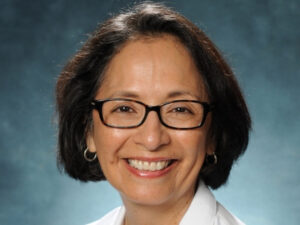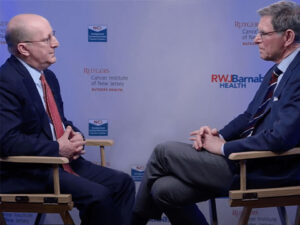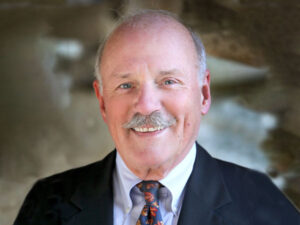The National Coalition for Cancer Survivorship began in 1986 with 23 people at a hotel in Albuquerque and a $100 contribution from Patricia A. Ganz, who recalls thinking: “I don’t think I’ve ever invested in anything that was so good.”
The National Cancer Act of 1971 established an unprecedented government-wide plan to eradicate a major disease, creating institutions that have no equivalent in other therapeutic areas and galvanizing the nationwide conversation about cancer.
When Susan Love joked that a group of breast cancer advocates in Salt Lake City should march topless to George H. W. Bush’s White House, she didn’t expect to be taken seriously.
Spanning part of September and October, it is a time to celebrate and recognize Hispanics or Latinos or Latinx persons* for their contributions. This nationwide observation begins on Sept. 15 when several countries in Latin America celebrate independence—Costa Rica, El Salvador, Guatemala, Honduras, and Nicaragua. Mexico celebrates independence on Sept. 16 and Chile on Sept. 18. Towards the end of Hispanic Heritage Month, Oct. 12 is also recognized as Día de la Raza.1 Persons of Hispanic ancestry have walked the Americas since 1492.
Matthew Zachary, a 25-year cancer survivor and founder of Stupid Cancer, didn’t always know what it meant to be a cancer advocate, or the complex and rich history behind the term.
Fran Visco never asked for $300 million in breast cancer research funding—she demanded it.
First published in 1977, Cancer Crusade: The Story of the National Cancer Act of 1971, is a dispassionate legislative history—a book you can trust.
Directors of the first three NCI-designated Comprehensive Cancer Centers are learning from the past, starting with the National Cancer Act, and mapping an equitable future for oncology.
In 1993, when William Hait came to New Jersey to start work toward the NCI designation for Rutgers, the place had one office and three cubicles.
Consortium cancer centers have been around for 50 years—since the signing of the National Cancer Act of 1971.















